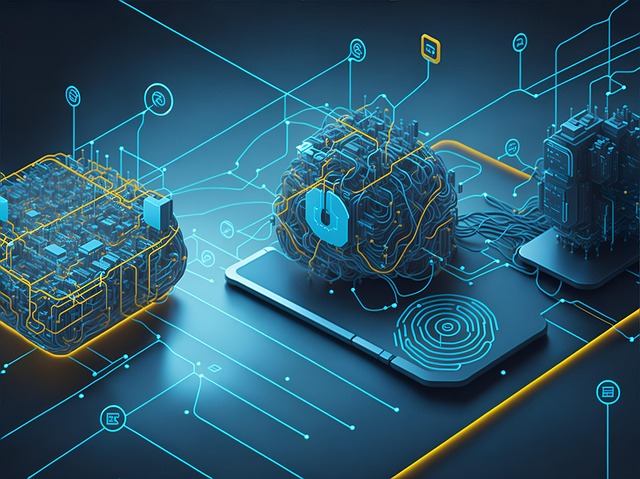AI automation is revolutionizing car repair shops by streamlining processes from initial diagnostic checks to parts inventory management, enhancing efficiency and customer satisfaction. AI algorithms leverage sensor data for quick issue identification, while machine learning models predict required maintenance. This technology ensures prompt ordering and replenishment of parts, reducing costs and stockouts. By adopting AI automation for automotive shop processes, facilities can optimize operations, maintain competitiveness, and deliver proactive services in a rapidly evolving market.
“Revolutionize your car repair shop with AI automation—the game-changer for streamlining automotive service. This comprehensive guide explores best practices for integrating cutting-edge technologies, enhancing efficiency across various shop processes. From AI-driven diagnostics and inventory management to chatbots for instant customer support, discover how these innovations can transform your business.
Learn from real-world case studies showcasing successful implementations, then implement strategies tailored to your needs. Optimize car repair workflows, improve accuracy, and elevate the customer experience with AI automation.”
- Integrating AI Technologies for Streamlined Car Repair
- – Exploring the benefits of AI automation in automotive shops
- – Case studies: Successful implementation examples
Integrating AI Technologies for Streamlined Car Repair

Integrating AI technologies in car repair shops is transforming the way automotive services are delivered, leading to more efficient and cost-effective operations. AI automation for automotive shop processes can streamline various tasks, from initial diagnostic checks to parts inventory management. For instance, AI algorithms can analyze sensor data from vehicles to quickly identify issues, reducing the time spent on manual inspections.
By leveraging machine learning models, car repair shops can predict when maintenance is required, enabling proactive service. This predictive capability not only enhances customer satisfaction by minimizing unexpected breakdowns but also optimizes shop schedules and resource allocation. Moreover, AI-driven inventory management ensures that parts are ordered and replenished promptly, reducing stockouts and associated costs.
– Exploring the benefits of AI automation in automotive shops

AI automation is transforming car repair shops by streamlining processes and enhancing efficiency. By leveraging artificial intelligence, automotive shops can automate routine tasks such as diagnostic scanning, parts identification, and inventory management. This not only reduces human error but also frees up technicians to focus on more complex repairs and customer interactions, ultimately improving shop productivity.
In addition, AI automation enables data-driven decision making by analyzing repair patterns and historical vehicle data. This can help shops optimize their operations, predict maintenance needs, and offer proactive services to customers. By embracing AI automation for automotive shop processes, repair facilities can stay competitive in a rapidly evolving market while delivering higher quality service at lower costs.
– Case studies: Successful implementation examples

Many car repair shops have been successfully integrating AI automation into their operations, resulting in improved efficiency and enhanced customer experiences. Case studies from leading automotive service centers highlight the positive impact of AI technologies on various aspects of shop management. For instance, AI-powered diagnostic tools enable technicians to identify issues more accurately and quickly, reducing the time spent on each repair. These systems can analyze vast amounts of data to pinpoint potential problems, even those not immediately apparent during visual inspections.
Additionally, AI automation streamlines administrative tasks such as scheduling appointments, managing inventory, and generating reports. By automating these processes, shops can free up valuable time for technicians, allowing them to focus on complex repairs and customer interactions. The successful implementation of AI in these real-world scenarios demonstrates its potential to revolutionize the automotive industry by optimizing shop floor processes and fostering a more competitive market environment.
AI automation is transforming car repair shops, streamlining processes, and enhancing efficiency. By integrating AI technologies, automotive professionals can optimize their operations, reduce errors, and improve customer satisfaction. The case studies highlighted in this article demonstrate the successful implementation of AI across various shop processes, setting a new standard for the industry. As AI continues to evolve, adopting best practices now will position car repair shops for long-term success in an increasingly digital automotive landscape.
